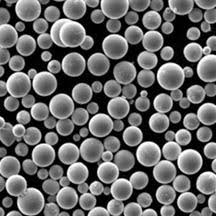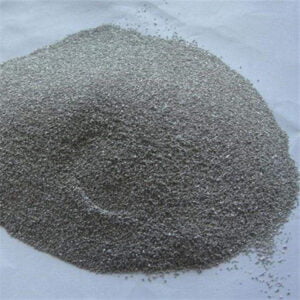Bästa 17-4PH rostfritt stålpulver för 3D-utskrift
17-4PH-pulver, även känt som 17-4 Precipitation Hardening rostfritt stålpulver, är ett höghållfast, korrosionsbeständigt material som används i olika industrier. Det tillhör den martensitiska rostfria stålfamiljen och erbjuder en utmärkt kombination av mekaniska egenskaper och korrosionsbeständighet. Beteckningen "17-4PH" hänvisar till legeringens sammansättning, som består av cirka 17% krom, 4% nickel, 4% koppar och en liten mängd andra element.
Låg MOQ
Tillhandahålla låg minsta orderkvantitet för att möta olika behov.
OEM & ODM
Tillhandahålla kundanpassade produkter och designtjänster för att tillgodose unika kundbehov.
Tillräckligt lager
Säkerställa snabb orderhantering och tillhandahålla tillförlitlig och effektiv service.
Kundtillfredsställelse
Tillhandahålla högkvalitativa produkter med kundnöjdhet i fokus.
dela denna produkt
Innehållsförteckning
Overview of 17-4PH Stainless Steel Powder for 3D Printing
17-4PH is a precipitation hardening stainless steel powder widely used for additive manufacturing of high-strength, corrosion-resistant components across aerospace, medical, automotive, and general engineering applications.
This article provides a detailed guide to 17-4PH powder for 3D printing. It covers composition, properties, print parameters, applications, specifications, suppliers, handling, inspection, comparisons, pros and cons, and FAQs. Key information is presented in easy-to-reference tables.
Composition of 17-4PH Powder
17-4PH is a chromium-copper precipitation hardening stainless steel with a composition of:
| Element | Vikt % | Syfte |
|---|---|---|
| Järn | Balans | Huvudmatriselement |
| Krom | 15 – 17.5 | Oxideringsbeständighet |
| Koppar | 3 – 5 | Härdning genom utfällning |
| Nickel | 3 – 5 | Stabilisator av austenit |
| Niob | 0.15 – 0.45 | Hårdmetallformare |
| Mangan | 1 max | Desoxidationsmedel |
| Kisel | 1 max | Desoxidationsmedel |
| Kol | 0.07 max | Strengthener and carbide former |
The copper provides precipitation hardening while chromium imparts corrosion resistance.
Properties of 17-4PH Powder
17-4PH possesses a versatile combination of properties:
| Fastighet | Beskrivning |
|---|---|
| Hög hållfasthet | Tensile strength up to 1310 MPa in aged condition |
| Hårdhet | Up to 40 HRC when aged |
| Korrosionsbeständighet | Comparable to 316L stainless in many environments |
| Tålighet | Superior to martensitic stainless steels |
| Slitstyrka | Better than 300 series stainless steels |
| Stabilitet vid hög temperatur | Strength maintained up to 300°C |
The properties make it suitable for diverse applications, from plastic mold tooling to aerospace components.

3D Printing Parameters for 17-4PH Powder
Typical parameters for printing 17-4PH include:
| Parameter | Typiskt värde | Syfte |
|---|---|---|
| Höjd på lager | 20-100 μm | Balance speed and resolution |
| Laserkraft | 150-400 W | Tillräcklig smältning utan avdunstning |
| Skanningshastighet | 400-1000 mm/s | Productivity vs density |
| Avstånd mellan luckor | 100-200 μm | Density and properties |
| Stödstruktur | Minimal | Enkel borttagning |
| Varm isostatisk pressning | 1120°C, 100 MPa, 3h | Eliminerar porositet |
Parameters are optimized for properties, time, and post-processing requirements.
Applications of 3D Printed 17-4PH Parts
Additively manufactured 17-4PH components are used in:
| Industri | Tillämpningar |
|---|---|
| Flyg- och rymdindustrin | Structural brackets, fixtures, actuators |
| Medicinsk | Dental implants, surgical instruments |
| Fordon | High strength fasteners, gears |
| Konsument | Watch cases, sporting equipment |
| Industriell | End-use metal tooling, jigs, fixtures |
Benefits of AM include complex geometries, customization, reduced lead time and machining.
Specifications of 17-4PH Powder for 3D Printing
17-4PH powder must meet strict specifications:
| Parameter | Specifikation |
|---|---|
| Partikelstorleksintervall | 15-45 μm typiskt |
| Partikelns form | Sfärisk morfologi |
| Skenbar densitet | > 4 g/cc |
| Tappdensitet | > 6 g/cc |
| Hall flödeshastighet | > 23 sekunder för 50 g |
| Renhet | >99,9% |
| Syrehalt | <100 ppm |
Custom size distributions and controlled moisture levels available.
Suppliers of 17-4PH Powder
Reputable suppliers include:
| Leverantör | Plats |
|---|---|
| LPW-teknik | STORBRITANNIEN |
| Sandvik Osprey | STORBRITANNIEN |
| Snickare Tillsats | USA |
| Praxair | USA |
| Erasteel | Sverige |
| AMETEK | USA |
Prices range from $50/kg to $120/kg based on purity, size, and order quantity.
Handling and Storage of 17-4PH Powder
As a reactive material, 17-4PH powder requires controlled handling:
- Store in cool, dry, inert environments away from moisture
- Prevent oxidation and contamination during handling
- Use conductive containers grounded to prevent static buildup
- Undvik ansamling av damm för att minimera explosionsrisken
- Lokal avgasventilation rekommenderas
- Wear PPE and avoid inhalation
Careful storage and handling ensures optimal powder condition.
Inspection and Testing of 17-4PH Powder
Quality testing methods include:
| Metod | Parameters Checked |
|---|---|
| Analys av siktar | Fördelning av partikelstorlek |
| SEM-avbildning | Partikelns morfologi |
| EDX | Kemi och sammansättning |
| XRD | Befintliga faser |
| Pyknometri | Täthet |
| Hall flödeshastighet | Flödbarhet för pulver |
Testing per ASTM standards verifies powder quality and batch consistency.
Comparing 17-4PH to Alternative Powders
17-4PH compares to other alloys as:
| Legering | Styrka | Motståndskraft mot korrosion | Kostnad | Svetsbarhet |
|---|---|---|---|---|
| 17-4PH | Utmärkt | Bra | Medium | Rättvist |
| 316L | Medium | Utmärkt | Medium | Utmärkt |
| IN718 | Bra | Bra | Hög | Rättvist |
| CoCr | Medium | Rättvist | Medium | Utmärkt |
With balanced properties, 17-4PH provides the best combination of strength, corrosion resistance, and cost for many applications.
Pros and Cons of 17-4PH Powder for 3D Printing
| Proffs | Nackdelar |
|---|---|
| Högt förhållande mellan styrka och vikt | Lower oxidation resistance than austenitic stainless steels |
| Good combination of strength and corrosion resistance | Required post-processing like HIP and heat treatment |
| Lower cost than exotic alloys | Controlled atmosphere storage needed |
| Established credentials in AM | Difficult to weld and machine |
| Comparable properties to wrought material | Susceptible to pitting and crevice corrosion |
17-4PH enables high-performance printed parts across industries, though not suited for extreme environments.
Frequently Asked Questions about 17-4PH Powder for 3D Printing
Q: What particle size range works best for printing 17-4PH alloy?
A: A range of 15-45 microns provides optimal powder flow while enabling high resolution and density in the printed parts.
Q: What post-processing is required after printing with 17-4PH?
A: Hot isostatic pressing and heat treatment are usually necessary to eliminate internal voids, relieve stresses, and achieve optimal properties.
Q: What material is 17-4PH most comparable to for AM applications?
A: It is closest to 316L in corrosion resistance but much stronger. 17-4PH provides the best overall combination for many high-strength applications above 300 series stainless.
Q: Does 17-4PH require supports when 3D printing?
A: Minimal supports are recommended on overhangs and complex inner channels to prevent deformation during printing and allow easy removal.
Q: What industries use additively manufactured 17-4PH components?
A: Aerospace, medical, automotive, industrial tooling, and consumer products are the major application areas benefitting from 3D printed 17-4PH parts.
Q: What accuracy and finish is achievable with 17-4PH AM parts?
A: After post-processing, 17-4PH printed components can achieve dimensional tolerances and surface finish comparable to CNC machined parts.
Q: What density can be expected with optimized 17-4PH prints?
A: Densities exceeding 99% are routinely achieved with 17-4PH using ideal parameters tailored for the alloy, matching wrought properties.
Q: Is 17-4PH compatible with powder bed fusion processes?
A: Yes, it can be processed using selective laser melting (SLM), direct metal laser sintering (DMLS), and electron beam melting (EBM).
Q: What defects can occur when printing 17-4PH components?
A: Potential defects are cracking, distortion, porosity, incomplete fusion, and surface roughness. They can be minimized through optimized print parameters.
Q: Can support structures be removed easily from 17-4PH printed parts?
A: Properly designed minimal supports are easy to detach given the excellent mechanical properties of the alloy in the aged condition.
Få det senaste priset
Om Xmetto
Produktkategori
HOT SALE
KONTAKTA OSS
Har du några frågor? Skicka oss meddelande nu! Vi kommer att betjäna din begäran med ett helt team efter att ha fått ditt meddelande.








